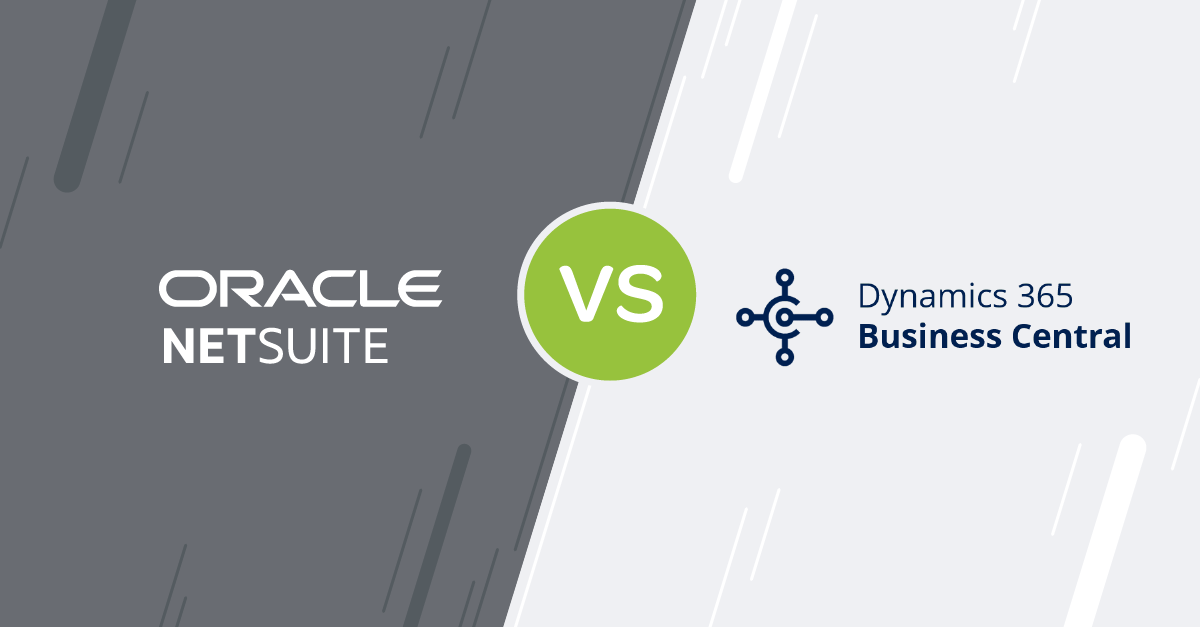Blog
Share this
ERP Funding for Canadian Businesses

by Carly Caines on November 18, 2025
Investing in an ERP system is a big step. It’s one of the most impactful ways to streamline your operations, improve data visibility and support long-term growth. But let’s be honest: it’s also a significant financial commitment.
That’s where funding programs can make a real difference, especially for small to mid-sized businesses in Canada. The good news? There are many opportunities out there—both federal and provincial governments offer grants and financial assistance to help businesses evaluate, implement or upgrade ERP systems as part of their broader digital transformation efforts.
The challenge is knowing where to look and how to apply.
Many funding programs change frequently. They may have specific intake windows, detailed eligibility criteria and application requirements that aren’t always easy to navigate. And while few programs are ERP-specific, you can often position your project to fit within broader funding mandates focused on technology adoption or productivity improvement.
In this article, we’ll walk through the current programs available and share tips to help you submit a stronger application and boost your chances of securing funding. We know that implementing a new ERP system is a significant investment! Along with the software purchase and implementation costs, you’ll also need to consider the time and effort your team will spend selecting the right ERP, adjusting processes and learning the new system.
How funding makes ERP more feasible
ERP can unlock huge efficiencies, but the upfront cost often gives business owners pause. Between software licenses, implementation services, employee training and change management, the investment can quickly reach tens or even hundreds of thousands of dollars depending on the size and scope of your business.
This is where government funding can provide much-needed relief.
Many grant programs in Canada are designed to support technology adoption in small and mid-size businesses. They aim to improve competitiveness, increase productivity and help Canadian companies grow. If your ERP project aligns with those goals, you may be eligible for financial support that offsets a portion of your costs.
ERP-related costs that may be eligible for funding include:
- Business assessments and technology evaluations
- Software and subscription costs
- Implementation consulting and system configuration
- Employee training and onboarding
- Custom development or integrations
Even if a program doesn’t explicitly mention ERP, it may still cover digital transformation initiatives more broadly. That’s why it’s important to frame your project strategically, showing how it will improve efficiency, scale operations or support innovation.
For example, if your ERP project includes automating inventory management, improving supply chain visibility or enabling ecommerce growth, these are all outcomes that align with common funding goals.
Digital adoption and ERP funding programs in Canada
Industrial Research Assistance Program (IRAP)
Status: Open and accepting applications year-round.
ERP relevance: Best suited for ERP projects that involve innovation, such as custom integrations, advanced workflows or process automation. ERP implementations that introduce new capabilities or enable product development may qualify.
Funding available: Up to $10 million.
Eligibility:
- Incorporated and profit-oriented Canadian business
- 500 or fewer full-time equivalent employees
- Business is pursuing growth by developing or commercializing innovative, technology-driven products, services or processes in Canada
Key considerations: Funding amounts vary based on the project’s scope, size and level of innovation, and you’ll need to consult with an Industrial Technology Advisor before applying. Your application should also include a strong business case with a solid technical plan and clear expected outcomes.
Explore Industrial Research Assistance Program
Business Scale-up and Productivity (BSP) – FedDev Ontario
Status: Open, with intake accepted on a rolling basis.
ERP relevance: ERP projects that help a business scale up operations, improve productivity or reduce manual processes can be eligible.
Funding available: Applicants normally request a minimum of $125,000 and up to a maximum of $10 million per project.
Eligibility:
- For-profit, incorporated business in Southern Ontario
- At least 2 years in operation
- Must demonstrate capacity to repay the funding (interest-free)
Key considerations: The program covers up to 50% of eligible project costs through repayable contributions, and any costs incurred before approval are ineligible.
Explore Business Scale-up and Productivity Program
Southwestern Ontario Development Fund (SWODF)
Status: Next intake expected end of year.
ERP relevance: Supports technology and capital investments that lead to business expansion or productivity improvements. ERP systems may be eligible when tied to broader growth.
Funding available: Up to 15% funding of a project costs, to a maximum of $5 million.
Eligibility:
- Located in Southwestern Ontario
- At least 3 years of operations
- Minimum investment of $500,000 (or $200,000 in rural areas)
- Must create at least 5 new jobs or increase workforce by 30%
Key considerations: Your ERP project must contribute to measurable growth and job creation, and because the program is competitive, strong planning and clear projections are essential in your application.
Explore Southwestern Ontario Development Fund
Eastern Ontario Development Fund (EODF)
Status: Opens twice annually (Spring and Fall).
ERP relevance: Funds tech and capital upgrades that support growth or boost productivity. ERP can be included if it’s tied to a bigger business improvement strategy.
Funding available: Up to 15% funding of a project costs, to a maximum of $5 million.
Eligibility:
- Located in Eastern Ontario
- 3+ years in business
- Minimum project investment of $500,000 (or $200,000 rural)
- Must create a minimum of 5 new jobs
Key considerations: Your ERP investment must clearly support business expansion or modernization, and applications should include a detailed project and hiring plan.
Explore Eastern Ontario Development Fund
Advanced Manufacturing and Innovation Competitiveness (AMIC) Stream
Status: Accepting applications; next intake expected in 2026.
ERP relevance: ERP implementations can qualify as part of a broader modernization strategy if they improve productivity, support innovation or help meet market demands in advanced manufacturing.
Funding available: Up to 15% funding of a project's costs, to a maximum of $5 million.
Eligibility:
- For-profit advanced manufacturing business in Ontario
- At least 3 years of operations with 10 or more employees (5+ in rural areas)
- Minimum eligible project investment of $500,000
- Must create at least 5 new jobs and/or upskilled current jobs
Key considerations: A pre-application consultation is strongly encouraged. To qualify, the ERP must fit within a broader productivity or scale-up initiative rather than be treated as a simple system replacement.
Explore Advanced Manufacturing and Innovation Competitiveness Stream
Ontario Automotive Modernization Program (O-AMP)
Status: Next intake expected in late 2025.
ERP relevance: ERP software is listed among eligible technologies under technology adoption. Projects that help Ontario-based automotive suppliers improve operational efficiency, quality or delivery performance may qualify.
Funding available: Up to 50% of eligible project costs, to a maximum of $150,000.
Eligibility:
- Ontario-based small to medium-sized automotive parts manufacturers
- Minimum of 10 full-time employees
- Must be in operation for at least 2 years
- At least 50% of sales must be to the automotive supply sector
Key considerations: The ERP must directly contribute to productivity, quality or competitiveness. Pre-approval is required before any costs are incurred. Because the program is highly competitive, well-scoped projects with clear outcomes have a stronger chance of being funded.
Explore Ontario Automotive Modernization Program
Alberta Manufacturing Productivity Grant (AMPG)
Status: Open for applications until October 31, 2026 (or until funds are exhausted).
ERP relevance: ERP investments that improve productivity, automation or data-driven decision-making can qualify, especially if paired with an operational assessment.
Funding available: Up to $30,000 in matching funding.
Eligibility:
- For-profit manufacturer in Alberta
- 5 to 750 full-time employees
- Must complete project by December 31, 2026
Key considerations: An initial operational assessment is required before starting the ERP implementation. Keep in mind that funding is offered on a first-come, first-served basis.
Explore Alberta Manufacturing Productivity Grant
Atlantic Canada Aerospace & Defence Association (ACADA) Digital Adoption Program
Status: 2025 program underway; 2026 intake details not yet posted but expected soon.
ERP relevance: Designed to help aerospace and defence SMEs in Atlantic Canada adopt digital technologies. ERP qualifies if it enables innovation, efficiency or modernization.
Funding available: Covers 65% of project costs from $5,000 to $18,000.
Eligibility:
- SME in the Atlantic region (NB, NS, PEI, NL)
- Operating within the aerospace, defence or security sector
- Membership with ACADA may be required
Key considerations: Intake details for 2026 are expected in November. Projects must support digital adoption and demonstrate measurable outcomes. The program is sector-specific, so eligibility depends on how well the project aligns with the target industry.
Explore Atlantic Canada Aerospace & Defence Association Digital Adoption Program
ERP funding for training
Canada Job Grant (CJG)
The Canada Job Grant is a federally supported initiative with individual programs in each province. Depending what province you’re in, the grant can cover 50%—100% of eligible training costs for your ERP implementation.
ERP funding available:
- BC Employer Training Grant: Employers can receive up to $300,000 per year under the program (April 1 to March 31).
- The Workforce Training Stream covers 60% of training costs, to a maximum of $5,000 per person, for training that aligns with the employer and employee needs.
- The Technical Training Stream covers 80% of training costs, up to $10,000 per person, to help employees learn new technical skills in response to automation and other tech advancements.
- Canada-Alberta Job Grant: Reimbursements for two-thirds of eligible training, up to $10,000 per individual and a max of $300,000 per fiscal year. Application period opens in March 2026.
- Canada-Saskatchewan Job Grant: Reimbursements for two-thirds of eligible training, up to $10,000 per individual and a max of $100,000 per fiscal year.
- Canada-Ontario Job Grant: Reimbursement up to $10,000 per person, with employers contributing one-sixth of the training costs if they have less than 100 employees. Companies with more than 100 employees must contribute half of the training costs.
Key considerations: This grant is intended to help businesses train new or existing employees with the goal of reducing skills gaps and creating opportunities for employment or advancement. Existing training programs aren’t eligible. Keep in mind the eligibility requirements and training qualifications vary by province, so check the guidelines carefully before submitting your application.
5 tips to align your ERP project to funding eligibility
Knowing which programs are available is only half the equation. To access funding, you need to position your ERP project in a way that aligns with each program’s goals and criteria. Here's how to make your ERP initiative fundable.
1. Link ERP to business outcomes that funders care about
Most programs don’t care about software for software’s sake. They care about the outcomes your ERP will support. Focus your application on:
- Productivity improvements: How will ERP help reduce manual work, speed up processes or increase throughput?
- Innovation: Are you adding new capabilities (e.g. custom workflows, automation, AI) that modernize your operations?
- Growth and scale-up: Will ERP help you handle more customers, orders, locations or product lines?
- Job creation or retention: Will the project support new hires or help preserve skilled roles?
Be specific. If ERP is going to reduce time spent reconciling inventory or cut order entry time by 30%, say that!
2. Clearly define your project scope and timeline
Grant reviewers want to see that your project is structured and achievable. Be sure to outline:
- Start and end dates: Make sure your timeline matches program rules (most won’t fund costs incurred before approval).
- Project phases: Break it down—assessment, implementation, training, etc.
- Budget breakdown: Show how much of your budget goes to software, consulting, training and internal resourcing.
A well-defined scope shows that you’re ready and lowers the perceived risk of funding your project.
3. Start with an ERP readiness assessment
Some programs (like Alberta’s AMPG) require this, but even when they don’t, it strengthens your case.
A readiness assessment:
- Helps you choose the right system and implementation path
- Identifies business challenges and goals that your ERP will address
- Makes it easier to quantify expected outcomes
This step also signals that you’re serious and reduces the chance of your application being rejected for lack of clarity.
If you want to strengthen your funding application, our ERP Readiness Assessment Checklist offers a simple way to capture the information reviewers look for.
4. Include internal costs and training where allowed
Most ERP projects include significant internal effort: team members helping with data migration, testing or process mapping. Some programs may allow you to claim:
- Internal backfill costs (if you’re hiring to support the project)
- Training for new ERP users
- Project management support
Review eligibility guidelines carefully and don’t underestimate the value of training and change management in your project budget.
5. Get your documents in order early
Funding applications often require:
- A business plan or project proposal
- Financial statements
- Proof of business incorporation
- Letters of support or partner commitment
Get these ready early so you’re not scrambling to meet submission deadlines.
Ready to fund your ERP project?
ERP is a big investment—but you don’t have to shoulder the full cost alone.
Government funding programs across Canada can help you reduce the risk, accelerate your timeline and get more value from your ERP project. Whether you’re still in the evaluation phase or ready to kick off implementation, the right funding strategy can make all the difference.
What’s next?
- Assess your ERP readiness. If you haven’t selected a system yet, start with a business assessment or digital adoption plan.
- Explore funding options by region. Review the programs listed above to find the ones that fit your industry, size and project scope.
- Talk to your ERP partner. A good partner can help you scope the project, help you identify funding opportunities and can provide helpful information to aid your application.
Looking to explore your ERP funding options?
If you don’t want to go down the government funding route but could still use some help financing your project, talk to your ERP implementation partner.
Some ERP vendors—like NetSuite—offer financing at low interest rates, and leasing can be a viable option for the right company. Chat with one of our ERP experts to explore your options.
Frequently asked questions
What types of ERP costs can I get funding for?
That depends on the program. Many cover software licenses, implementation services, training, change management and sometimes internal costs like backfilling roles during the project.
How much funding can I get?
It varies. Some programs offer matching grants of 15–50% of eligible costs. Others provide repayable contributions (interest-free loans). Maximum amounts range from $30,000 to $10 million depending on the program and your project.
Can I combine multiple grants?
Sometimes. Some programs allow stacking (using multiple sources of funding), while others prohibit it. Always check the stacking rules in each program’s guidelines.
Can I get funding for an ERP upgrade, not a new system?
Yes—if the upgrade significantly improves your business (e.g. automation, better reporting, scalability), it may qualify. You should reach out and confirm with the program to see what’s covered.
What if I already started the project?
Most programs won’t fund costs incurred before approval. If your project is already underway, your options may be limited, but it’s still worth checking with the program to see.
Share this
Stay in the Know!
Join other SMEs who receive our monthly ERP insights, tips and best practices.
You may also like

ERP Funding for Canadian Businesses

Should You Work with a NetSuite Implementation Partner or Go Direct?



